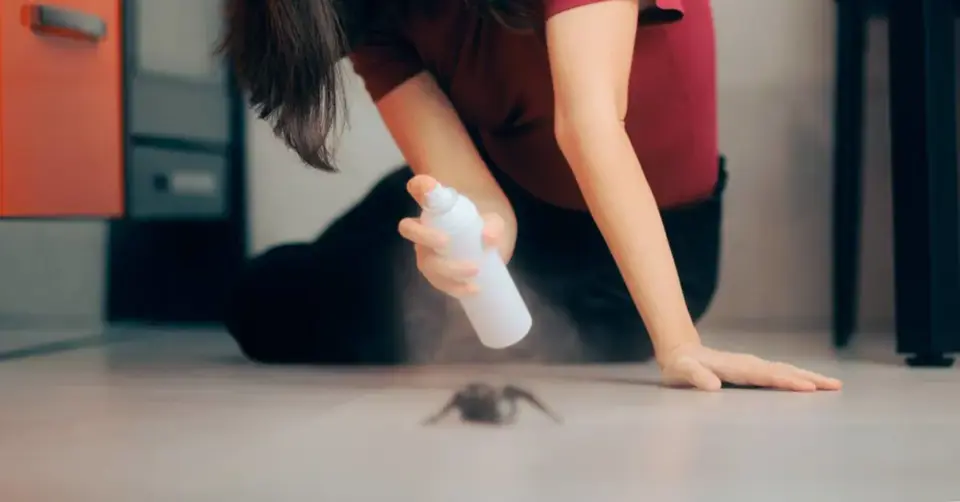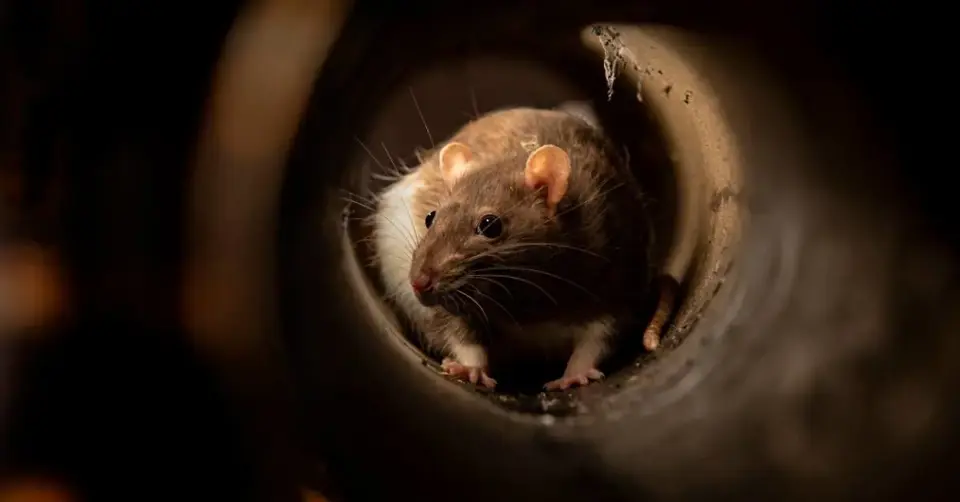

Help! Should I Be Scared of Rats in Plano?
A healthy rat is not likely to threaten you. If you leave a rat alone, it will probably leave you alone. Issues arise when rats are cornered or feel threatened. They are wild animals and they have a natural instinct to survive. When a rat is sick, it is spooked more easily, but there are far worse implications to having a sick rat in your home. Let's look at some basic facts about rats that every Plano resident should know. We'll look at how to tell if you have rats in your home; we'll cover some of the ways a sick rat could make you sick; we'll share effective tips to help you prevent a rat infestation if you don't already have one; and finally, we'll tell you what you should do if you do have rats. If you have questions or want to request service to get rid of rats, contact us. All-Safe Pest & Termite provides advanced rodent pest control in Plano. We can help.
How To Tell If It's Rats Infesting Your Home
We have several pests that invade our homes. Plano is rich to have a diverse wildlife population. If you are hearing noises in your home, it is important to understand that there are a few animals that can make those noises. Let's break down a few facts to help you tell if rats in Plano are your problem.
- Are you hearing noises in your walls? Only a handful of wildlife pests get into walls. Rats are one of them. Keep in mind that rats will make louder noises in your walls than a mouse or a bat.
- Are you hearing noises in your attic? Rats get into attics to nest. If you hear noises at dusk or during the night, you may have rats or mice. If you hear noises during the day, your pest is likely a squirrel. If there is a raccoon up there, you'll likely hear much louder noises than a rat will make, and you may also hear vocalizations. Raccoons are also active at night.
- Are you finding droppings? Many pests leave black droppings in Plano homes. Mouse droppings are smaller than grains of rice. Cockroaches and other insects create droppings even smaller. Rat droppings are larger than rice, and squirrels, raccoons, opossums, and bats have droppings that are larger than rat droppings.
- Are you seeing holes? Rats are big rodents, but they don't need large holes. They can fit through any holes they can fit their head through. If you find holes, or gaps that something has gnawed on, consider the size. Mice get in through holes that are about the size of a nickel.
- Are you seeing a rodent? Rats are brown or black and have thick tails and rounded snouts. Mice are gray or tawny and have thin tails and pointed snouts.
If you see or hear signs of rats, the next step is to consider what it means to have rats in your home. You should also know the ways a rat can make you sick. Let's compare rats to mice.
Which Is More Dangerous, Rats Or Mice?
Before we tell you which is more dangerous, it is important to look at what makes rodents dangerous. You may equate danger as having an animal in your home that will bite you. While a rat is far more likely to bite you than a mouse, they aren't predisposed to aggressive behavior. On some level, they know you provide the food. Rats and mice are not a direct threat to safety. They present a danger to people when they leave droppings, urine, ticks, fleas, and bacteria as they explore.
- Rodent waste is a disease concern. Their waste material is associated with the spread of hantavirus, lymphocytic choriomeningitis, leptospirosis, tularemia, and more.
- Ticks and fleas are a disease concern as they can transmit diseases to humans. The diseases spread by these pests is zoonotic. That means a sick rat is more of a threat because the ectoparasites on its body can get infected.
- Rodents pick up harmful bacteria, such as salmonella and E. coli, or parasitic worms. When they crawl around inside your home, they can contaminate surfaces, dishes, and stored foods with these invisible, disease-causing organisms.
There is one way rats and mice present a threat to people that does not have anything to do with diseases. Rats and mice chew on many things inside man-made structures, including wires and gas lines. Their constant chewing can lead to a house fire. That is a serious threat that can take you by surprise.
So, which is more dangerous, a rat or a mouse? The greater their ability to do the things listed above, the greater the threat. There are a few factors to consider.
- Rats have a condition called neophobia. They are incredibly suspicious of new items that appear in the places they explore. Rats may completely ignore traps for a long time. Mice, on the other hand, are curious animals and are more likely to get caught in a trap.
- Rats are large animals that sometimes survive contact with a springloaded trap. A mouse isn't likely to survive contact with a trap unless it moves quickly to evade the trap when it snaps, which does happen.
- Rats reproduce faster than mice. One female rat can create a litter of 12 pups as many as 8 times a year. That's 96 new rats from the one momma rat. Mice also reproduce quickly—just not as fast as rats.
It isn't good to have rats in your home—so, what can you do about rats? How do you keep them out?
Effective Tips To Prevent Rats On Your Property
Only a few factors motivate rats. If you understand what attracts a rat to your home, you can work to keep them out. A rat is going to go where it feels most comfortable. Your goal is to make rats feel very uncomfortable.
- Rats have poor eyesight and will use objects on the ground in your yard to help them navigate. Remove ground clutter to deter rats.
- Rats can smell decaying organic materials from a distance and will come to investigate. Keep your trash in covered containers and your receptacles clean.
- Rats love seeds. If you have bird feeders, you'll invite rat problems.
- Rats eat nuts, just like squirrels. Rake nuts up underneath nut-bearing trees, and refrain from feeding the squirrels peanuts.
- Rats eat fruit. Protect berry bushes and pick up fruit that falls from trees.
- Rats hide in overgrown landscaping. Trim bushes, shrubs, and ornamentals. Remove weeds and tall grass, and blow leaves out.
- Rats hide underneath structures. Use hardware cloth to block access. When you install hardware cloth, insert it at least a foot into the ground to deter rats from tunneling under.
- Rats are thigmotactic. When they see a hole, they're likely to explore it. They want to squeeze into places. Thigmotaxis is the opposite of claustrophobia. Use a caulking gun to seal gaps. Use expanding foam to fill voids. Replace weatherstripping where needed. And make other repairs to block routes rats can take to get inside. Pay close attention to gaps around pipes.
- Roof rats are attracted to trees. They climb trees and run along branches, like a squirrel. Trim branches away from your roofline. Doing so will prevent roof rats from accessing your home by way of vulnerabilities up there.
- Roof rats scale other things. They can't help but climb a pipe or work their way up through a gutter downspout. Put guards on pipes that run up the sides of your home. Put wire mesh in your downspouts. Wire mesh allows water to run out but prevents rats from running up.
Keep in mind that a licensed professional can help you reduce rodent populations around your home by installing tamper-resistant traps. Professional control is needed when rodent pressures are unusually high, or conducive conditions are difficult to correct.
What's The Best Way To Get Rid Of Rats In My House?
If you have a group of rats in your home, you may consider laying traps down for them, but doing so can have many unwanted results. The best solution for rats is to get professional assistance. It is also the best way to get rid of rats fast. DIY rat control often fails. But, even when residents have success, they deal with rats much longer than they would have if they had professional rodent control. A professional uses science to control rats. The process begins with an inspection to evaluate rodent activity, conducive conditions, potential routes, potential entry points, nesting, and more. A professional will use the findings from the inspection to establish a rodent control plan that is multi-pronged. During the process, rodent activity is monitored and the rodent control strategy is evaluated. If rodents do something unexpected (which they tend to do), an experienced rodent control professional will switch things up. When the process is complete, you won't have to wonder if you have rodents in your home!
Do you live in Plano, Texas? Contact All-Safe Pest & Termite for smart, eco-friendly, and highly-effective rodent control. We use trusted products and field-tested methods. We know what works.

How We Can Help You Our Services






.jpg.2512151557471.webp)